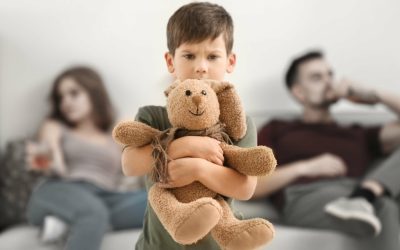By understanding these factors, you can create an effective plan tailored specifically to your loved one’s needs. When it comes to preparing for relapse prevention planning, one of the most important steps is gathering information. This is not just a helpful task but a crucial one to ensure success in preventing future relapses.
- The cognitive challenge is to acknowledge that recovery is sometimes hard work but addiction is even harder.
- Alan Marlatt, PhD, developed an approach that uses mental, behavioral, and lifestyle choices to prevent relapse.
- One example of how this approach has worked in practice comes from a study focused on families affected by substance abuse.
Try to brainstorm a list of scenarios that could lead to potential relapse and list the warning signs of relapse. Some people begin to feel, think or behave differently when a relapse is brewing. During an emotional relapse, a person is not consciously thinking about drinking. However, their emotions and behaviors are setting the stage for a relapse. Cognitive-behavioral therapy (CBT) for individuals and groups has consistently demonstrated effectiveness in treating and reducing the risk of relapse. Below you will find a sample of a https://ecosoberhouse.com/ example which you can use as a template for your relapse prevention plan.
Mind-Body Relaxation as Part of Self-Care
When people don’t understand relapse prevention, they think it involves saying no just before they are about to use. But that is the final and most difficult stage to stop, which is why people relapse. If an individual remains in mental relapse relapse prevention plan long enough without the necessary coping skills, clinical experience has shown they are more likely to turn to drugs or alcohol just to escape their turmoil. Preventing relapse isn’t as easy as saying no to opportunities to use again.

During an emotional relapse, the main goal should focus on self-care. The acronym HALT– hungry, angry, lonely, and tired–is critical to remember during this stage. Situations that cause stress, like job loss, relationship problems, or financial issues, often lead to relapses. Alcohol can temporarily relieve stressful feelings, but they return once the drinker stops drinking. Meet new people and create new social circles that encourage your recovery.
How to Create a Successful Relapse Prevention Plan
This experience may even help you see where you weren’t doing what you should have been doing in your sobriety program (12-step-based or otherwise). They think it is almost embarrassing to talk about the basics of recovery. They are embarrassed to mention that they still have occasional cravings or that they are no longer sure if they had an addiction. 3) Clients feel they are not learning anything new at self-help meetings and begin to go less frequently. Clients need to understand that one of the benefits of going to meetings is to be reminded of what the “voice of addiction” sounds like, because it is easy to forget.

During this stage, the main focus is fighting cravings and avoiding alcohol use. Driving to the liquor store and purchasing alcohol are also considered physical relapses. Ask yourself questions like, “are you giving yourself enough time to rest? ” If the answer to these questions is no, it might be time to take a step back and practice self-care. You might also want to share your feelings with a support group or counselor.
Abstinence Stage
The plan should be thorough and honest, with multiple responses that can be utilized when the time comes when recovery is threatened. Self-care means being mindful of negative or unhelpful thoughts that could incite relapse. It also helps train your body to reduce post-acute withdrawal symptoms in the weeks or months after getting sober. Physical relapse usually occurs due to a lack of coping strategies during the mental relapse phase.
- It involves taking the time to tend to your mental and physical health, such as getting enough sleep, eating healthy food, and exercising regularly.
- Setting up a system to reach out if they sense you may be heading toward a relapse might also be helpful.
- It’s not uncommon for people who struggle with addictions to relapse after completing treatment, and it doesn’t mean treatment failed.





